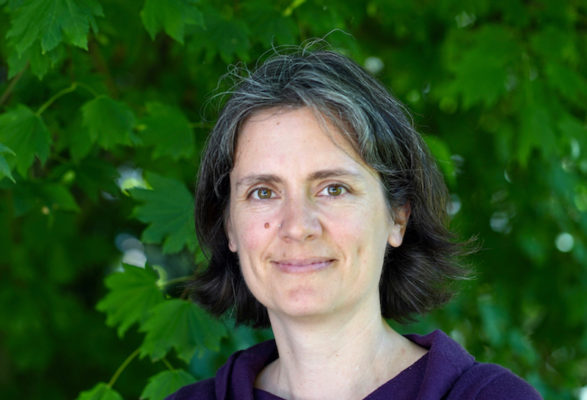Mary I. O’Connor is an Associate Professor in the Zoology Department and Associate Director of the Biodiversity Research Centre at the University of British Columbia in Vancouver, Canada. O’Connor is a leader in metabolic ecology research, using experiments, data synthesis and theoretical models to understand change in aquatic ecosystems, including causes and consequences of biodiversity change and climate change impacts. O’Connor is an External Faculty of the Santa Fe Institute, Affiliate of the Hakai Beach Institute, and currently serves on the Secretariat of the Western Society of Naturalists. O’Connor lab researchers participate in research collaborations and networks worldwide, including the marine coastal Zostera Experimental Network (ZEN), Canadian Healthy Oceans Network (CHONE2), the Canadian Institute for Ecology and Evolution (CIEE ), and iDiv Synthesis Centre. She is a winner of UBC’s Killam Research Prize and the International Professional Research Excellence prize in 2016. O’Connor earned a BS in Aquatic Ecology from Brown University (2000), and a PHD from UNC-Chapel Hill in 2008, followed by a postdoc at the National Center for Ecological Analysis and Synthesis (NCEAS).
Talk title: Toward a unified science of ecological change: Thermal ecology as a central pillar
Abstract: Biodiversity change and ecological responses to climate change are topics of major concern, and we rely on ecological theory to guide how we relate observed or suspected changes to potential consequences for ecosystem functions and services. Our major theories of life emphasize either energy and materials (metabolic theories, in which temperature plays a major role) or information (biodiversity, evolution). I am seeking avenues for unification across these conceptual pillars, and insights gained by a unified approach for modern ecological problems. I will present recent work that strengthens our understanding of how general temperature dependence of metabolism constrains population-level processes and fitness potential, providing a key link between temperature and ecological and evolutionary outcomes across scales. I am deeply interested in unifying our ecological science across scales, and hope to discuss how we can continue to take steps in that direction to bridge themes in modern ecology.
